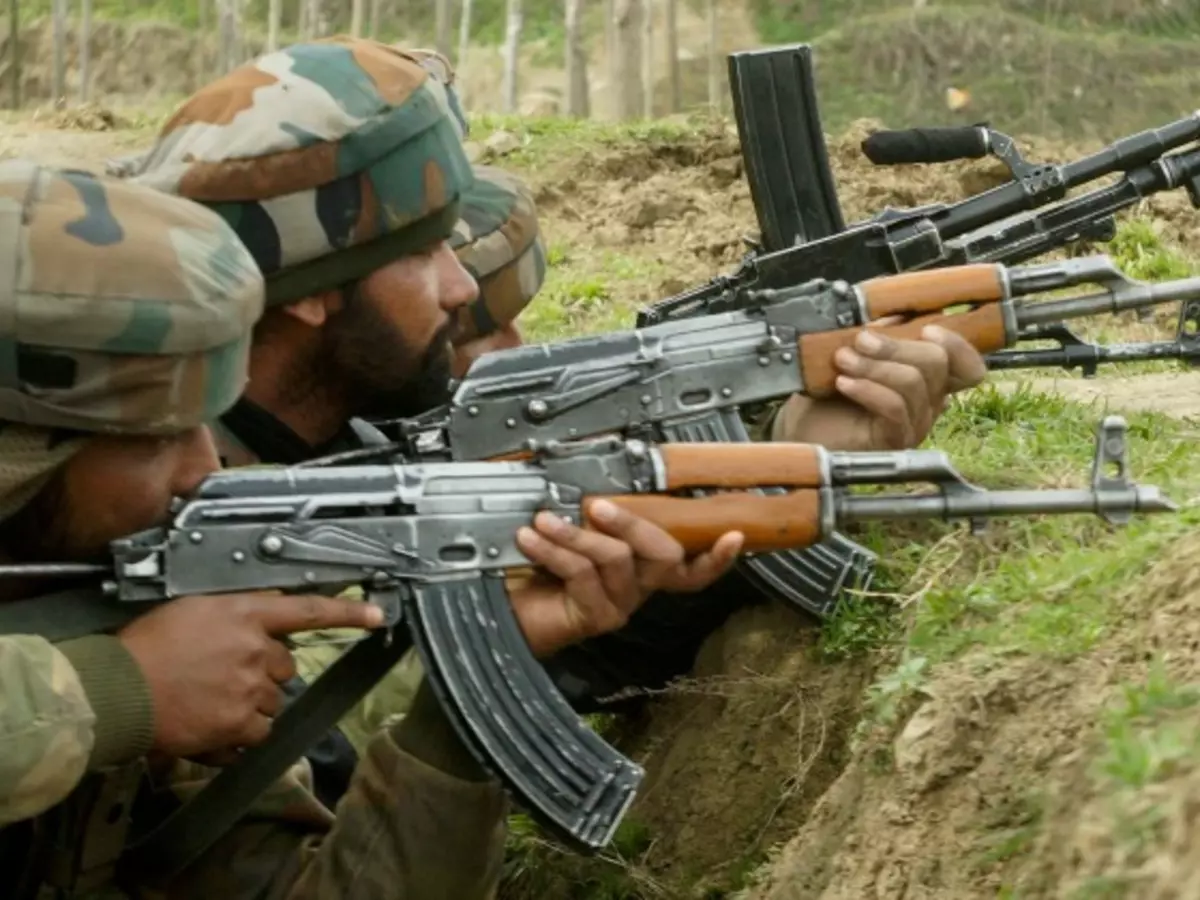Amid escalating tensions between India and Pakistan, Pakistan has violated the ceasefire for the fourth consecutive day along the Line of Control (LoC). The violation took place during the night of 27-28 April 2025, when Pakistani Army posts initiated unprovoked small arms fire in areas opposite the Kupwara and Poonch districts of Jammu and Kashmir. The Indian Army responded promptly and effectively to the aggression.
Details of the Ceasefire Violation
Pakistan’s aggressive actions marked the fourth consecutive day of ceasefire violations. On the previous day, the Pakistani Army had initiated fire on several Indian posts along the LoC, further escalating the situation. In its official statement, the Indian Army emphasized the effectiveness of its response, stating that the troops responded with appropriate small arms fire, ensuring the safety of their positions.

This series of attacks follows a growing pattern of cross-border skirmishes, particularly after the tragic terrorist attack in Pahalgam on 22 April 2025, which resulted in the deaths of 26 people. In response, India has intensified its security operations, with both military and diplomatic actions underway.
Impact of the Pahalgam Terrorist Attack
The Pahalgam terror attack has significantly escalated tensions between India and Pakistan. Following the attack, India has implemented retaliatory measures, including the suspension of the 1960s Indus Water Treaty and the cancellation of visas for Pakistani nationals. Pakistan, in turn, has responded by putting the 1972 Shimla Agreement on hold and closing its airspace to Indian carriers.
Jammu and Kashmir Chief Minister, Omar Abdullah, has voiced support for a decisive response to terrorism but cautioned against actions that could alienate innocent people. Abdullah stressed that while the perpetrators of terrorism should be punished without mercy, innocent civilians must not be caught in the crossfire.
Retaliatory Measures and International Reactions
In the aftermath of the Pahalgam attack, both nations have engaged in a series of retaliatory actions. The Indian government has taken steps to strengthen its border security and reinforce its stance against terrorism. However, diplomatic channels remain open as both countries continue to navigate the complex situation.
The international community has expressed concerns over the escalation of tensions in the region, urging both countries to engage in dialogue and work towards a peaceful resolution. The situation remains fluid, with both sides preparing for further developments along the LoC.
Conclusion: The Escalating India-Pakistan Tensions
The ongoing ceasefire violations along the LoC and the aftermath of the Pahalgam terrorist attack have significantly raised the stakes in the India-Pakistan conflict. As tensions continue to mount, the need for diplomatic intervention and de-escalation becomes more critical. The situation along the LoC remains a key focal point in the broader context of India-Pakistan relations, with both countries on high alert.









